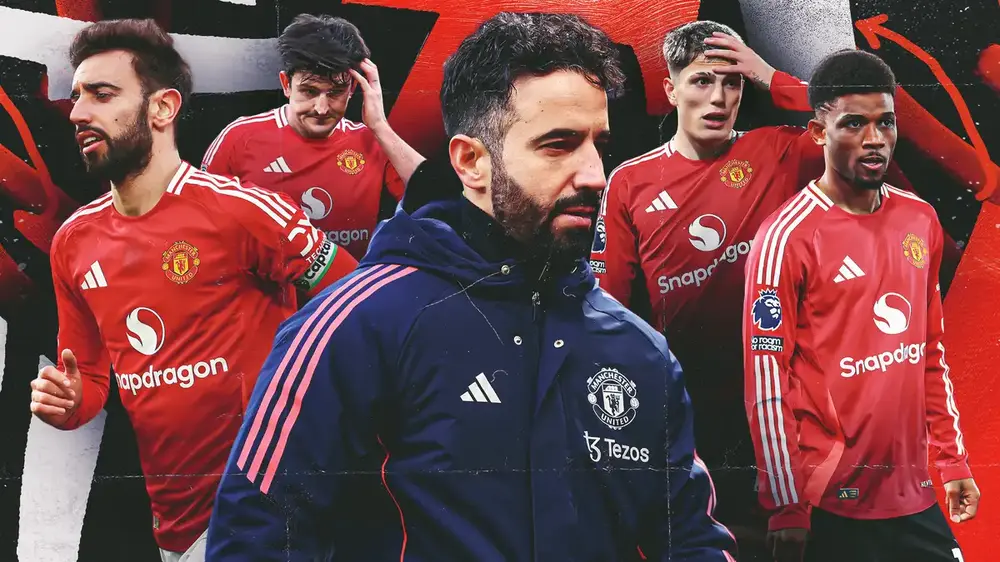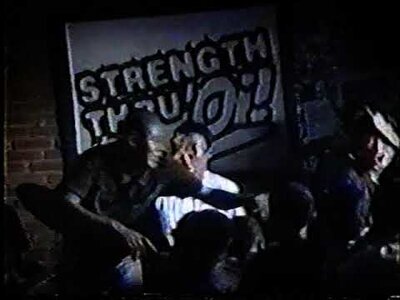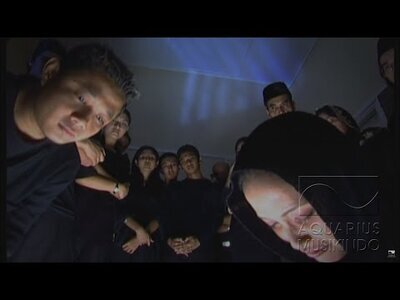Ruben Amorim’s task at Manchester United is proving tougher than anyone anticipated, but he knows the way forward and must remain steadfast.
It was a strange moment at Old Trafford. Ruben Amorim had just answered a question about leaving out Marcus Rashford when another query on squad rotation interrupted him. But this time, it wasn’t a journalist—rather, it was the sound of a drip from the ceiling.
A lot has changed at United since Sir Jim Ratcliffe bought his £1.2bn stake in the club. The training ground is being overhauled, plans for a new stadium are gaining momentum, and £160m has been pumped into new signings. However, the problems persist. The team is still suffering home defeats like the 3-0 loss to Bournemouth, Rashford's attitude remains a constant issue, and a leaky roof at Old Trafford adds to the list of woes.
Amorim left behind a successful Sporting CP to join this chaotic project, leaving the comfort of Lisbon for a Manchester squad in disarray. Christmas came and went with him away from home, leading his team to a Boxing Day fixture against Wolves. Given the circumstances, he could easily question his decision to take on this challenge, but he won’t. Amorim is committed to the long road ahead. His plan may be a tough one, but he knows the path to a better future—and sticking to it is key.
While it may seem like Manchester United have made no progress since replacing Ten Hag with Amorim, the Portuguese manager has a clear plan to turn things around. He must remain committed to it, and the club must support him every step of the way.
No Clear Signs of Progress
Nine games into Amorim's tenure, the statistics are far from promising. United sit 13th in the Premier League—just one place higher than when Ten Hag was sacked in October and in the same position Amorim inherited from Ruud van Nistelrooy in November. With just seven points from six league games, they’ve earned one less than Ten Hag in his final six matches.
Amorim's side is also out of the Carabao Cup, which Ten Hag won in his first season, and his FA Cup hopes seem slim after a tough third-round draw against Arsenal. Defensively, United have conceded 17 goals in nine games, seven of them from set pieces. They've also suffered two home defeats, to Bournemouth and Nottingham Forest, both by 3-0 scores—mirroring the losses under Ten Hag to Liverpool and Tottenham.
There is some positive news, though. United have made progress in the Europa League, securing victories over Bodo/Glimt and Viktoria Plzen, putting them in a strong position to reach the last 16 without needing to go through the playoffs. They also pulled off a stunning derby win away at Manchester City. However, Ten Hag also managed to secure wins over City, including in an FA Cup final.
Taking Responsibility for Injuries
There have been a few noticeable improvements under Amorim. The team is scoring more goals than under Ten Hag—1.8 goals per game compared to 1.5—and they look less vulnerable in open play, doing a better job of controlling opposition transitions. However, set-piece defending remains a major issue and needs improvement. Still, Amorim has managed to make the team appear slightly more cohesive.
One key area where Amorim has taken responsibility is the team’s injury issues. He's made squad rotation a priority, even if it means fielding players with less experience or ability. After making six changes following the loss to Tottenham, Amorim explained his approach: "It's not rotation to see players and prepare for the future, it's simply to avoid injuries. I know there's a long-term project and we're focused on that, but at big clubs, you don’t have a lot of time and you have to win games. I understand the responsibility I have here, but I'm trying to manage the team to avoid injuries. If you have injuries, it’s a massive problem."
Unlike Ten Hag, whose second season was marred by injuries, Amorim has acknowledged the link between injury issues and squad rotation, something the Dutchman was reluctant to do.
More Authoritative than Ten Hag
Amorim has shown himself to be a much more authoritative figure than Ten Hag, both in his communication with the media and his management of players. Ten Hag often talked about improving standards and enforcing discipline, but his actions didn’t always back up his words.
Take Cristiano Ronaldo, for example. Despite walking off at half-time during the Rayo Vallecano pre-season match, he was still included in the squad for the season opener against Brighton. When Ronaldo refused to come off the bench against Tottenham, he was only dropped for one game.
Similarly, when Rashford was late to a team meeting ahead of the Wolves match, Ten Hag’s punishment was to bench him. Yet, when the game was still 0-0 at half-time, Rashford was brought on, scored the winner, and the issue was quickly forgotten. Even after Rashford skipped training following a drunken night out in Belfast, he was only dropped for the Newport County match, returning to the starting lineup a few days later to score against Wolves.
Amorim, on the other hand, appears to be more consistent in his approach, holding players accountable without compromising on his authority.
'Big Talent, Big Responsibility'
Amorim has proven to be a much stricter enforcer of his rules. He left both Rashford and Garnacho out of the squad for the Manchester derby, questioning their off-pitch attitude. While Garnacho returned for the League Cup match against Tottenham just days later, Rashford was again left out, this time for the Bournemouth game. The ongoing exclusion of the homegrown forward has become a major distraction, and if United are considering selling him, this lack of playing time—coupled with Amorim’s apparent criticism—could only decrease his market value.
But Amorim is holding firm. He won’t reintegrate Rashford into the squad until he sees a clear improvement in his training performances. After the Bournemouth match, Amorim’s detailed explanation should resonate with United fans frustrated by underperforming players. He said, "Everyone at Carrington knows what I'm talking about and what I want from Marcus and from everyone else, so it’s not a distraction for us. Maybe it is for the media, but that’s not my concern. Rashford should be like any other player, the best they can be."
He continued, "If you have big talent, you need to show big performance, big responsibility, and big engagement. Push everyone forward. Some players have a big responsibility because they’ve been here a long time. This is one of the lowest moments in our club’s history, and we need to face it and be strong—that’s what I want from every player."
Where Solskjaer Went Wrong
Amorim ended his comments on Rashford with a firm declaration: "I'm doing things my way, it's the only way I know. If I don't do that, I'll lose myself, and I won't lose myself. I know what I'm doing." This vow to stick to his principles is a clear sign of Amorim’s confidence in his methods, and it should offer reassurance to United fans who grew frustrated with Erik ten Hag’s early compromises.
Ten Hag, hired for his success with Ajax, raised eyebrows after just a year in charge when he claimed United would "never play like Ajax." This comment came after a significant shift in style following his side’s poor start to the season, which included losses to Brighton and Brentford. Ten Hag abandoned his earlier principles of playing out from the back and dominating possession, opting instead for a counterattacking approach. This new style saw United finish third in the Premier League and reach two finals in his first season. But by his second year, the team had stagnated, and Ten Hag's lack of evolution in tactics became evident.
Solskjaer faced a similar fate in his third full season. Despite some early success, he was dismissed after humiliating defeats—5-0 to Liverpool and a dismal performance against Manchester City at Old Trafford. Reflecting on his time at United, Solskjaer told the Stick to Football podcast: "At Manchester United, you have a responsibility to entertain the fans. Don’t just go for the result. In those two home games, I thought we needed to be Manchester United—don’t defend, don’t rely on counterattacks. Let the players go out there, go toe-to-toe with the opposition. If you’re not willing to take that step, what’s the point of being at United? At some point, you need to evolve—and my team wasn’t ready. It just wasn’t good enough."
Doing It His Way
In his first interview as United boss with Gary Neville, Amorim hinted that Erik ten Hag had been too pragmatic during his time at the helm. Amorim made it clear that he had a different approach: "I know you can win with Erik, and he was amazing at Ajax. He built two of the best teams outside the top five leagues. But for me, I have one idea, and I know what to do. It might go wrong, but I’m comfortable with that. Step one, step two, step three. With this, I’m confident we’ll achieve something. One idea is to see the game the same way, understand it the same way, and do things in one way."
Implementing such a rigid style of play won’t happen overnight, especially with so many games and so few training sessions for Amorim to instill his philosophy. Rasmus Højlund admitted after the Nottingham Forest loss that there was "a lot to take in," and even after two weeks, the team is still adjusting to Amorim’s methods. The next few weeks could be even tougher. On Boxing Day, United face a revitalized Wolves, led by new Portuguese manager Vítor Pereira, and then end the year against a strong Newcastle side. The new year kicks off with a trip to league leaders Liverpool and an FA Cup tie against Arsenal.
The schedule softens slightly after that, with home games against Southampton, Brighton, Crystal Palace, and Ipswich, plus away trips to Fulham, Tottenham, and Everton by the end of February. By then, it should be clearer whether Amorim’s methods are paying off. But what’s already evident is that Amorim won’t accept mediocrity, and he will not compromise.
After being thrashed by Bournemouth, Amorim sat beneath a dripping ceiling, a man who fully understood the massive task ahead of him—but also looked like someone capable of solving it. He said, "We cannot let this become normal. I understand it's a tough moment, and it's on me. If I knew [how to fix it], I’d solve all the problems, even this drip. I won’t say I’m relaxed, because I’m as frustrated as the fans, but I know what to do."
Despite the rough start, Amorim remains a man with a plan. And unlike his predecessors, he is determined to see it through.
.png.19eb16b991c78e03b20d7e99f96f36cc.png)























Recommended Comments
There are no comments to display.
Join the conversation
You can post now and register later. If you have an account, sign in now to post with your account.